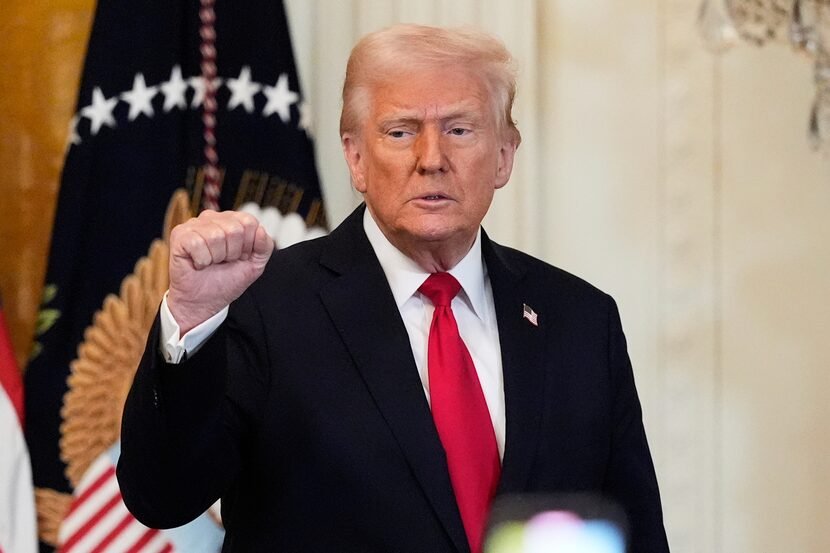The U.S. administration, led by President Donald Trump, has imposed a 25% tariff on all imported vehicles, a move that escalates ongoing trade tensions. The decision, announced Wednesday, aims to boost American auto manufacturing but has already drawn criticism from international trade partners and economists warning of potential price hikes for consumers.
Meanwhile, the White House is embroiled in a security breach scandal after Jeffrey Goldberg, editor-in-chief of The Atlantic, was mistakenly added to a private Signal group chat discussing upcoming military action in Yemen. The administration insists that no classified information was compromised, but the controversy has raised concerns about internal security protocols.
25% Tariff on Non-U.S. Cars
The newly announced tariff applies to all fully assembled vehicles imported into the United States. Trump defended the move, stating, “We must protect American jobs and our great auto industry from unfair competition.” The policy follows previous tariffs imposed during his presidency and is expected to impact automakers in Europe, Japan, and South Korea.
Trade analysts warn that the tariffs could lead to increased vehicle prices and potential retaliatory measures from affected countries. According to the U.S. Bureau of Economic Analysis, imported vehicles accounted for approximately 40% of car sales in the country last year.
White House Responds to Signal Security Breach
The Trump administration is also facing scrutiny after a major security lapse involving a high-level discussion about a planned military strike in Yemen. The Atlantic published the conversation in full on Wednesday, intensifying criticism over the White House’s handling of classified discussions.
National Security Adviser Mike Waltz, who was involved in the chat, has publicly taken responsibility for the mishap. However, Trump dismissed calls for his resignation, shifting the blame to a “lower-level” White House employee. “Mike Waltz has done a fantastic job. There’s nothing for him to apologize for,” Trump said in a press briefing.
Officials Under Fire
Defense Secretary Pete Hegseth and Vice President JD Vance were also part of the Signal chat and now face bipartisan criticism. Hegseth reportedly shared sensitive strike times and operational details, prompting Democratic lawmakers to demand his resignation. The White House has defended the officials, arguing there is a distinction between “attack plans” and broader “war plans.”
Critics argue that regardless of the classification of the information shared, the incident highlights weaknesses in internal security procedures. “This is not just about one mistaken message,” said Senator Mark Warner. “This is about the reckless way this administration handles national security.”
International and Political Reactions
The dual crises—the auto tariff and the security breach—have drawn sharp reactions domestically and internationally. Global car manufacturers are evaluating potential price adjustments, while some foreign governments are considering retaliatory trade measures.
On the security front, the incident has fueled ongoing debates about the Trump administration’s approach to handling sensitive information. Some analysts believe this could further erode trust in U.S. leadership on the global stage.
With trade tensions rising and a security scandal unfolding, the administration faces mounting pressure to address both issues. The auto tariff is expected to take effect within 30 days, giving affected industries little time to adjust. Meanwhile, lawmakers are calling for an internal review of the security breach to prevent similar incidents in the future.

